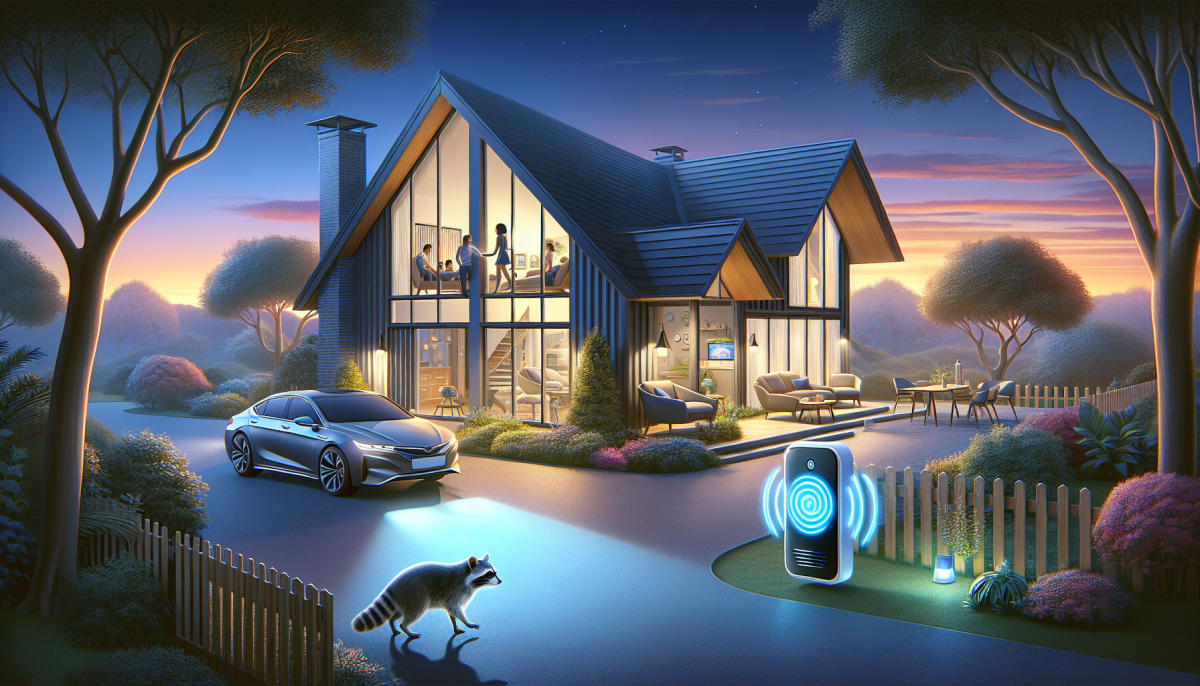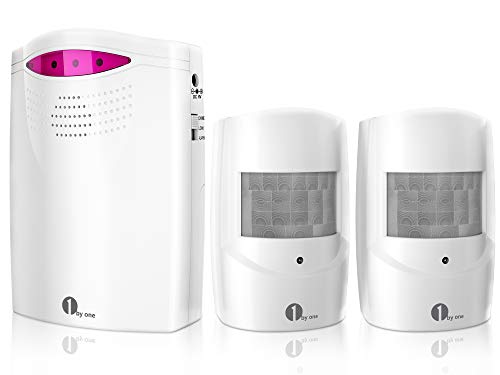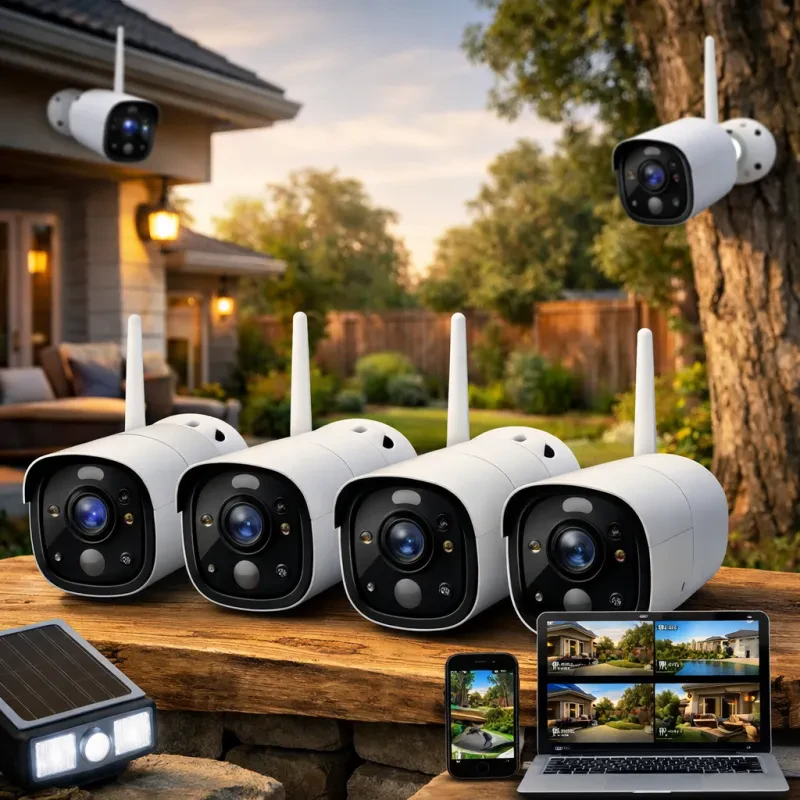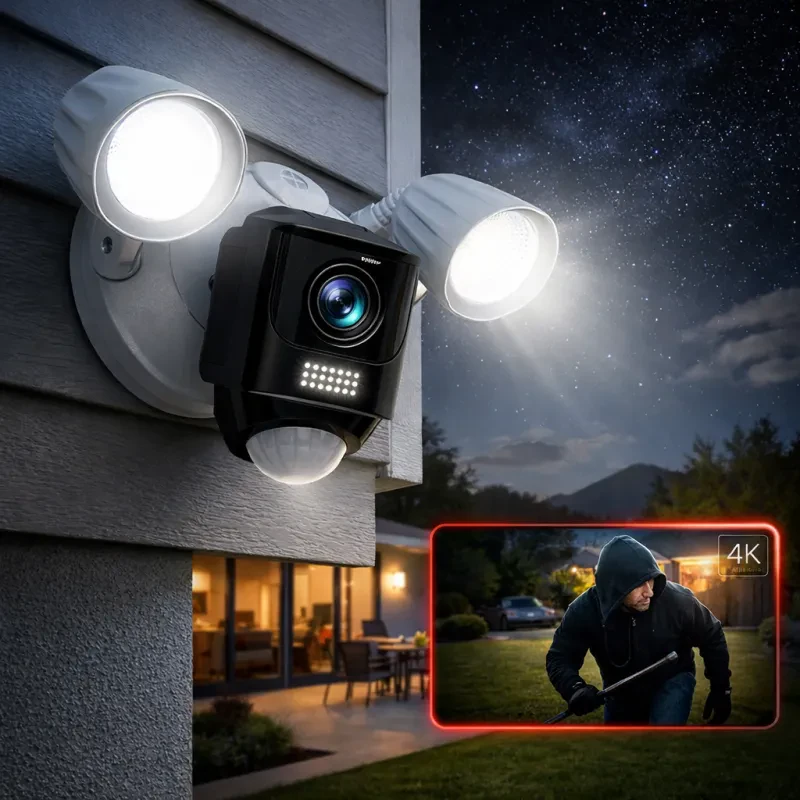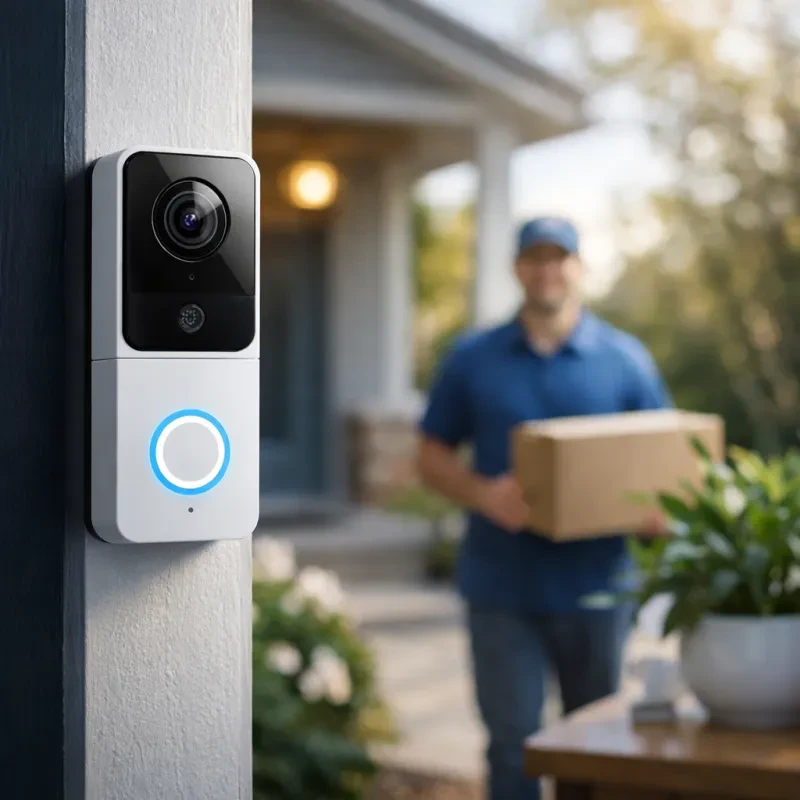When it comes to enhancing the security of your home, a Wireless Driveway Alarm can be an invaluable addition. However, not all alarms are created equal, and choosing the right one can feel overwhelming with so many options available. Here are a few key factors to consider that will help you make an informed decision.
First, think about the range of the Wireless Driveway Alarm. Depending on the layout of your property, a longer range may be necessary to cover the distance from your driveway to your home. Most models will indicate their detection range, so be sure to check this specification. Additionally, if you live in an area surrounded by trees or buildings, look for an alarm that can effectively send signals through obstacles.
Next, consider the type of sensor technology used in the Wireless Driveway Alarm. Many alarms use infrared sensors, while others may use magnetic sensors or motion detection. Infrared sensors are great for capturing heat from vehicles, whereas magnetic sensors can detect changes in the magnetic field caused by a passing vehicle. Determine which type suits your needs best and offers the reliability you’re looking for.
Lastly, think about the features and functionalities that come with your Wireless Driveway Alarm. Some models offer customizable alerts, allowing you to choose between chimes, sirens, or even smartphone notifications. Others may come with additional features like multiple sensor compatibility or integration with your home security system. Select a model that complements your lifestyle and provides the level of security you desire.
Wireless Driveway Alarm: Motion Sensor Security System
Enhance your home security with our Wireless Driveway Alarm, the ideal motion sensor security system
Product information
$34.99 $27.99
Product Review Score
4.73 out of 5 stars
29 reviewsProduct links
Easy Installation Steps for Your Alarm
Installing your new Wireless Driveway Alarm is a breeze! With just a few simple steps, you can enhance your home security in no time. First, unpack your wireless driveway alarm system and make sure all components are present. Typically, this includes the sensor, receiver, and any necessary batteries. Check the user manual for a quick overview of the parts you’ll be working with.
Next, choose the best location for your sensor. It should be placed where it can easily detect movement in your driveway, ideally 10 to 30 feet from the area you want to monitor. Avoid placing it too close to the street as passing cars may trigger unnecessary alerts. Once you’ve decided on the spot, securely mount the sensor using screws or adhesive, depending on your model. Make sure it’s angled appropriately for optimal motion detection.
After mounting the Wireless Driveway Alarm sensor, it’s time to set up the receiver. Plug it into a power outlet in your home, ideally within range of the sensor. Many systems offer various alert options like sounds or flashing lights, so customize it according to your preference. Remember to test the connection between the sensor and receiver by walking in front of the sensor. If it activates the alarm, congratulations! Your installation is successful.
Finally, consider any additional settings your Wireless Driveway Alarm may offer. Some models allow you to adjust sensitivity settings or even connect to your smartphone for mobile alerts. With everything configured, you’re ready to enjoy the peace of mind that comes with enhanced home security! Regularly check the batteries and test the system every few months to ensure it remains in perfect working condition.
Best Features to Look For
When considering a Wireless Driveway Alarm, it's important to know what features will best serve your needs. The right alarm system can enhance your home security by providing timely notifications whenever someone enters your property. Here are some key features to look for when selecting a Wireless Driveway Alarm.
First, look for systems with adjustable sensitivity. This feature ensures that you won’t receive false alarms from small animals, passing cars, or even leaves blowing in the wind. A Wireless Driveway Alarm with adjustable sensitivity lets you customize the detection range, so you can set it to alert you only when something significant crosses your driveway.
Another essential feature is the range of the transmission. Make sure to choose a Wireless Driveway Alarm with a long-range signal to ensure that it works effectively, even with distances between your sensor and the receiver. Some models offer coverage of several hundred feet, making it ideal for larger properties. This way, you can rest assured that you won’t miss any alerts, no matter how far away your receiver is from the driveway sensor.
Finally, consider a Wireless Driveway Alarm that includes multiple alert options. Different people have different preferences when it comes to notifications, so having a system that offers sound alerts, visual alerts, or even smartphone notifications can be very beneficial. This flexibility allows you to choose the mode that works best for your lifestyle, keeping you informed of any activity in your driveway.
Maintaining Your Driveway Alarm System
Maintaining your Wireless Driveway Alarm system is essential to ensure it operates efficiently and continues to provide the security you need. Regular maintenance can prevent false alarms and ensure that you always receive accurate notifications. Start by checking the batteries in your alarm sensors and receiver periodically. Most systems use batteries that may need replacing every 6 to 12 months, depending on usage and environmental conditions. Keeping fresh batteries on hand can help avoid any interruptions in your home’s security.
Next, inspect the sensors of your Wireless Driveway Alarm for any dirt, debris, or obstructions. Dust and debris can accumulate over time, affecting the sensor's ability to detect motion accurately. A quick wipe with a soft cloth can do wonders. Additionally, ensure that any plants or bushes close to the driveway are trimmed back to prevent them from blocking the sensor's line of sight.
It's also a good idea to test your Wireless Driveway Alarm regularly. This can be as simple as walking or driving past the sensors to verify that they're functioning correctly. If you notice any delays in notifications or missed detections, it may be time to recalibrate the sensor settings or check for any software updates provided by the manufacturer. Staying on top of these checks will help you maintain an effective security presence around your home.
Lastly, keep an eye on the environment surrounding your Wireless Driveway Alarm. Weather can affect the performance of your alarm system. Heavy rain, snow, or extreme temperatures might impact the sensors' functionality. If you notice that your alarm is malfunctioning during severe weather, consider placing protective covers or enclosures to shield it from the elements. With a little attention and care, your wireless alarm can be a reliable guardian for your home's security.
